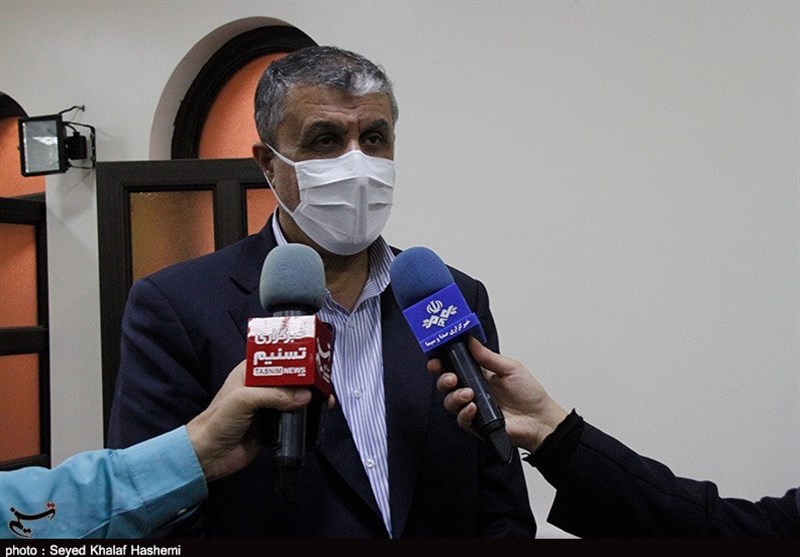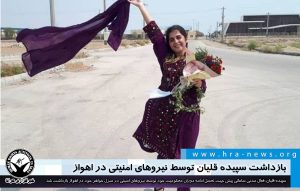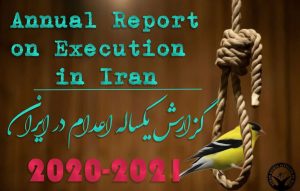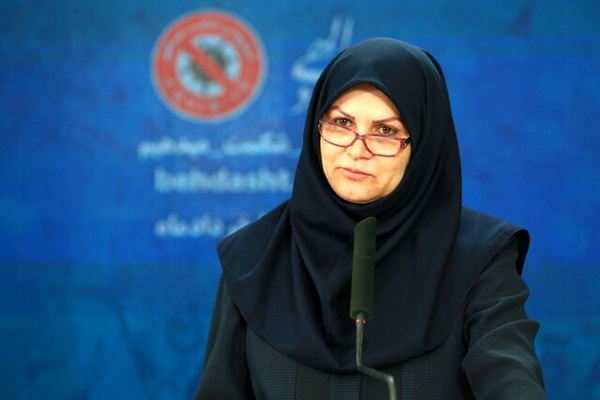
Israel and Azerbaijan Are Most Serious Threats
The editorial of Arman Melli focuses on the recent escalation of tensions between Iran and Azerbaijan, highlighting Israel’s role in this regard. The editorial urges that Iran should send serious warnings to Azerbaijan over Israel’s threats posed against Iran from this country.
Through Azerbaijan, Israel now has a military, security, intelligence and defense presence on Iran’s northwestern borders. This presence is in line with Tel Aviv’s inclination to always adopt aggressive and sabotaging policies against Iran, be it from its own territories or other countries – particularly countries neighboring Iran.
Over the past years, Tehran has tolerated the decisions of Baku’s officials when it comes to Israel’s influence in Azerbaijan. Iran should not have tolerated Azerbaijan’s behavior in this regard and should have given serious warnings to Azerbaijan and if Azerbaijan’s authorities had not paid attention to these warnings, Iran should have taken decisive measures in this regard.
If this had happened, Israel could not have exploited Azerbaijan for terrorism, sabotage, espionage, stealing documents, and creating insecurity in Iran. Over the past couple of years, these measures have significantly increased and the head of Israel’s intelligence agency Mossad has said in this regard that operations against Iran would escalate from neighboring countries.
People Are Concerned About Bread, not Shanghai
The editorial of Aftab Yazd explains why people do not care about – and are not even aware of – the news of Iran’s full membership in the Shanghai Cooperation Organization (SCO) as they are struggling to earn their living.
Many hold that access to the internet has increased people’s awareness in society, but this is not necessarily true.
Iran recently became a member of the SCO, which was a good thing. But when we talk to people on the streets and ask them about this issue, most Iranian people do not know about it, while very few people know what the SCO is and do not know what political and economic impact Iran’s SCO membership will have.
It is obvious why. It is because people only follow news that is related to their livelihood. Now if we ask them about the nuclear talks, they are undoubtedly aware of even the smallest details in this regard because it is tied to their livelihood.
Iranian people follow changes in the price of the dollar closely as it is related to their purchasing power, and they know about the huge embezzlements made by officials as it is related to their resources being plundered. But they do not follow issues like the membership of Iran in the SCO as it has no role in their lives.
On the other hand, no awareness is raised in this regard through cyberspace or even domestic and foreign media, because people are struggling so much in their daily lives that they do not have time to follow the news. Usually, news related to people’s livelihood goes from shop to shop, and whoever enters a shop will hear about it.
This is not to suggest that people today have a political vision and can analyze the situation. Today, Iranian society is concerned with its daily bread. Insofar as people are concerned with earning their daily bread, we cannot expect them to have a political vision, and that prepares the ground for the rise of populism. People who are worried about their livelihood will listen to anyone who promises them the moon.
Necessity of Change in Foreign Policy
The editorial of Arman Melli argues that it is only realistic to have relations with both East and West for a nation to grow and develop its resources. The editorial calls for the Iranian government to make changes in its foreign policy accordingly.
There is a proverb which states, “a thousand friends are not enough, one enemy is too many!” This must be the motto of Iran’s foreign policy. In today’s world, everything is relative. So, when the world’s nations are after their own national interests, Iranian rulers must not think of themselves as different. National interest is a matter of math and numbers, which is why the way the countries’ rulers act determines which nation is rich and which is poor.
Rulers must accept that in today’s world numbers and statistics matter, which is why they must look at the realities and facts as they cannot use their own imaginings and dreams to create economic welfare, employment, etc.
It must be accepted that just as the East has weak and strong points, so does the West. But the universal truth is that today the sun of technology, as well as cultural, economic and political changes, is rising from the West!
Today’s world necessitates having transactions with both the West and East, so those countries that have recognized both have had relatively better growth and development. Meanwhile, countries like North Korea, Venezuela and Cuba have not made great achievements for their nations. Perhaps, some claim success for their foreign policies, but poverty, depression and despair cast a long shadow on these successes.
Interestingly, China and Russia themselves have effective relations with America and other Western countries.
Those rulers who bring poverty, depression and despair to their nations will necessarily lose their popular support, while their people will become more and more angry, resentful, etc.
What Is Wrong With Iran’s Economy?
The editorial of Iran Daily focuses on the fact that Iran’s economy is suffering from flawed policymaking and might collapse if no fundamental changes are made to it.
Iran’s economy is now facing many different threatening challenges. One of these problems is chronically high inflation which is rooted in serious budget problems and flawed government policies. Furthermore, other challenges in Iran’s economy include the problems and deficiencies in the country’s banking and monetary system, as well as the pension funds crisis, the water and environmental crises, and the increasing monopoly over production.
On the other hand, in foreign relations and trade, Iran is facing many problems, and the level of exports is low leading to a trade imbalance. No capital enters the country, while we can see an increase in capital outflow.
This is a long list of economic problems in Iran, and if these problems are not resolved together, there will not be any change in the situation.
Even though oil revenues, in the short run, have made it possible not to deal with these problems now, Iran’s place in global energy markets will not be as before, even if all sanctions against it are fully lifted. Large-scale decisions suffer from a lack of strategic planning, while Iranian officials who have leftist tendencies are intent on using policies like those of former communist countries to save and steer Iran’s economy.
Examining the problems facing Iran’s economy shows that the implementation of flawed economic policies not based on scientific principles is one of the numerous problems which exists. Of course, there are also powerful interest groups that play a significant role in the decline of the economic situation. As these groups benefit from the current situation, they do not allow other approaches to be tested in Iran’s economy.
Moreover, most significant economic decisions are made individually, and when they are announced, the economic managers carry them out without even questioning them. But if these decisions prove to be wrong, then there is no opportunity to rectify them.
Under these circumstances, only the worsening of the economic situation might prompt Iranian officials to reform the economic system. The authorities disregard for experts’ warnings, however, might eventually result in economic collapse.

Iran’s 20 Percent Enriched Uranium Stockpile Over 120 Kilograms

The Head of the Atomic Energy Organization of Iran (AEOI) said that Iran’s 20 percent enriched uranium stockpile has passed over 120 kilograms.
Mohammad Eslami, deputy to the Iranian president and head of the AEOI, also said in an interview with Iran’s state-run television that that plans for producing uranium metal are already underway.
Eslami added that in accordance with the nuclear deal, they were supposed to provide 20 percent enriched uranium fuel for Tehran’s reactor, but this did not happen and “if we had not started to make this level of fuel, it would have been problematic for us.”
According to Eslami, 60 percent enriched uranium has been produced as well.
The International Atomic Energy Agency (IAEA) had estimated last month that Iran’s 20 percent enriched uranium stockpile had reached 84.3 kilograms, while it was 62.3 kilograms in June.
Enriching uranium at 20 percent had ceased in 2013 along with a temporary agreement between Iran and the P5+1 aimed at halting the international sanctions against Iran.
According to the nuclear deal (JCPOA), Iran is allowed to produce uranium enriched at 3.67 percent.
About a year ago, two days after Iranian Supreme Leader Ali Khamenei’s order, Iran resumed enriching uranium at 20 percent.
Meanwhile, Western powers have asked Iran to return to the Vienna nuclear talks, warning that in light of the developments in Tehran’s nuclear plan and ignoring all limitations set in the JCPOA, time is running out for resuming the nuclear talks.
At the same time, in recent days, senior American and European officials have expressed hope that the nuclear talks for reviving the JCPOA will soon resume. The Iranian Foreign Ministry has confirmed this, saying the new round of talks might start in early November.
Talks for resuming the JCPOA resumed in Vienna in March 2021, and while after six rounds, all sides were optimistic about its outcome, the talks came to an end when Ebrahim Raisi, Iran’s new hardline president, came to power in June.
Nuclear negotiations and talks for reviving the JCPOA have always been under a firestorm of criticism by Iranian “hardliners.” Recently, Hossein Shariatmadari, editor-in-chief of hardline Kayhan daily, slammed the nuclear deal on a television program, saying, “JCPOA is a stinking corpse and if we want to return to it, we will gain nothing.”
Civil, Political Activist Sepideh Gholian Arrested

Sepideh Gholian, a civil and political activist, who was on leave from Bushehr prison, was arrested at her sister’s house following a raid by security forces.
According to HARNA, a news agency for human rights activists, 30 security forces raided the house of Gholian’s sister, arrested Gholian and seized all the mobile phones of her family members.
This civil activist has recently made disclosures about the conditions in Bushehr prison. On her personal Twitter account, she had called this prison “a place near the end of the world” where women are treated inhumanely and forced to do dishonorable things.
Many social media users reacted to Gholian’s disclosures about Bushehr prison, and following that, some other prisoners disclosed similar conditions in other Iranian prisons. But the head of the Prisons Organization of Iran called Gholian’s disclosures “strange,” claiming that some prison guards, prisoners and their families have filed a lawsuit against Gholian.
Sepideh Gholian has been sentenced to five years of imprisonment. She was first arrested in her father’s house in 2016, and since then has been arrested many times by the security forces. In 2018, she was arrested along with a number of workers from Haft-Tappeh Sugarcane Company in Khuzestan province, and when the coerced confessions of Gholian and the representative of the workers, Esmail Bakhshi, were broadcast on Iran’s state-run television, many civil activists and human rights organizations denounced the torture that these two prisoners had been subjected to.
That year, Gholian disclosed the torture she suffered in prison, and in her book, “Tilapia Sucks the Blood of the Hawizeh Marshes,” pointed to cases of torture, humiliation and discrimination against Ahvazi Arab young men and women in Ahvaz prison.
In her initial trial, Gholian was sentenced to 19 years of imprisonment on charges of “measures against national security,” “propaganda against the regime,” “dissemination of falsehood” and “disrupting peace.” However, in the appeal court, her sentence was commuted to five years of imprisonment.
10 Percent Increase in Executions in Iran

During the past years, protests in Iran against capital punishment have become widespread. Not only are several in line to be executed, but issuing the death penalty is also used as a threat against defendants.
A new report on executions in Iran says that during October 2020 to October 2021, at least 266 people were executed by hanging showing roughly a 10 percent increase compared to the same period the year before.
According to HRANA news agency, which released the report on the eve of World Day Against the Death Penalty, nine of those executed were women while three people were under the age of 18 at the time of committing their crimes.
Iran has set the age of criminal punishment at 15 for boys and nine for girls, whereas international conventions like Children’s Rights have established the age of criminal punishment for both boys and girls at 18.
Iran has conditionally accepted this convention, but it is still among the few countries that issues death sentences for criminal adolescents and carries them out after they are 18 years of age.
According to the HRANA report, during this period, more than 6 percent of those executed were accused of security violations and “corruption on earth” and a major part of the executions were related to murder cases and smuggling drugs. HRANA also reports that 82 percent of executions are carried out clandestinely or without any announcement in the public media.
Another part of the report states that the provinces of Khorasan Razavi, Alborz, Sistan and Balochistan and Western Azerbaijan had the highest rates of executions.
Meanwhile, Iranians in Berlin, Germany, held gatherings on World Day Against the Death Penalty, calling for the unconditional, immediate release of all political prisoners and revoking capital punishment in Iran.
During the protests, executions were condemned as an organized crime which not only does not reduce violence in the country, but also perpetuates the culture of vengeance and violence.
Alarming Increase in Malnutrition in Some Provinces

The head of the nutrition department in the Iranian Health Ministry says malnutrition and food insecurity in various provinces of Iran, particularly in deprived provinces, have increased.
Zahra Abdullahi, in an interview with ILNA, has said that due to economic circumstances as well as coronavirus and its repercussions, malnutrition has increased in the provinces of Sistan and Balochistan, Hormozgan, Kerman, Southern Khorasan and Khuzestan.
According to Abdullahi, the thinness index of children in Sistan and Balochistan has increased from 6 percent to 12 percent and in Southern Khorasan from 5 percent to 8 percent. She emphasized that the increase in food insecurity in the deprived regions has led to an increase in malnutrition in children under five years of age and other vulnerable groups such as pregnant women.
Abdullahi stated that the economic repercussions of coronavirus, the impact of climate change on agriculture, sanctions and difficulties in importing goods have all contributed to creating food insecurity among low-income families.
She particularly expressed concern about the conditions in the provinces of Sistan and Balochistan, Hormozgan, Kerman, Southern Khorasan and Khuzestan.
Abdullahi called for reviving the free distribution of milk in schools, adding that the prices of food items like meat, chicken, eggs, and dairy must be contained to make them available for low-income families.
For over a decade, Iran’s economy has been grappling with chronic inflation, negative growth, the loss of value of the national currency, unemployment, and inequality.
In recent months, several food items have reportedly been eliminated from Iranian tables because of high inflation.
Hamshahri newspaper has reported that low- and mid-income families do not have access to certain food items. According to this newspaper, based on the latest report by the Statistical Center of Iran, out of 53 food items, the prices of 40 items are in the “critical zone.”
The Statistical Center has stated that if the price of an item increases by 2 percent per month or 24 percent per year, it is considered to be in the “critical zone.”
